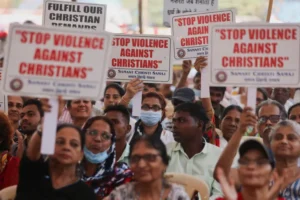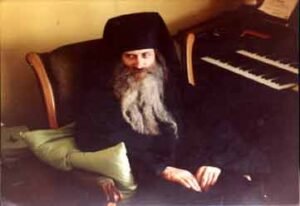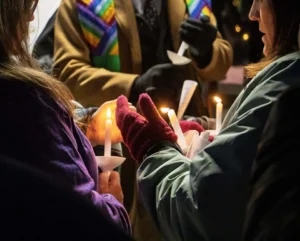Conclave Betting Pools and Bingo Cards: The Super Bowl of Being Catholic
Introduction to Conclave Betting
The papal conclave represents a significant and spiritual event in the Roman Catholic Church, marking the election of a new pope. This rare occurrence captures the attention of millions, attracting not only devout Catholics but also curious observers worldwide. The context surrounding this election is not solely contemplative but is also infused with a sense of excitement and engagement. As anticipation builds for the upcoming conclave, many in the faithful community engage in various activities designed to enhance their experience, including conclave betting pools and bingo cards. This phenomenon has come to embody what some have aptly dubbed the ‘Super Bowl of Being Catholic.’
Conclave betting is a unique practice that forms part of the broader event, enabling participants to predict outcomes, such as the identity of the next pope. This informal betting culture has emerged in tandem with the conclave’s solemnity, adding an element of camaraderie and fun among participants. Whether among friends, family, or online communities, betting pools transform the papal election process into a shared experience that transcends mere observation, inviting individuals to speculate on the future leadership of their faith.
Bingo cards, on the other hand, serve as another method of engagement. These cards often include various potential occurrences during the conclave, such as different papal names or rituals. Participants delight in marking off these instances while gathered with fellow Catholics, promoting a spirit of communal involvement and excitement. The incorporation of these betting aspects into the conclave elevates the event from a purely religious occasion to one that fosters interaction and enthusiasm, reinforcing the sense of community within the Catholic Church.
The History of Papal Elections
The process of papal elections has a rich history that dates back to the early years of the Church, reflecting the evolving dynamics of ecclesiastical governance. Initially, the election of a pope was largely a regional affair, influenced heavily by local clergy and laypeople. However, over time, especially with the establishment of the College of Cardinals in the 11th century, the election became more centralized. This body is primarily composed of senior church officials tasked with electing the pope, ensuring that the process is steeped in spiritual and pastoral considerations.
The conclave, which literally means “with a key,” encapsulates the secrecy surrounding papal elections. Founded in the 13th century, it is the gathering of cardinals held to elect a successor following the death of a sitting pope. This event is characterized by various rituals and procedures, underscoring the solemnity of this significant event in the Catholic Church. The deliberations are often lengthy, and the atmosphere can be quite tense given the weight of the responsibility involved. During this period, cardinals are sequestered from external influence, reflecting the commitment to divine guidance in their decision-making.
In recent years, the public’s interest in papal elections has intensified, leading to unique cultural phenomena such as betting pools and bingo cards among Catholics. This light-hearted approach allows the faithful to engage playfully with the solemn event of electing a new pope. Historical examples, such as the election of Pope Francis in 2013, have sparked notable moments that have been widely discussed and celebrated, further bridging the gap between serious religious observance and community interaction. As the traditions surrounding papal elections continue to evolve, the modern iteration now includes a blend of reverence and enjoyment, reflecting contemporary Catholic culture.
Understanding Betting Pools
Betting pools are an intriguing aspect of the papal conclave, allowing participants to engage in the time-honored tradition of speculation regarding which cardinal will be elected as the next pope. The excitement surrounding the conclave creates a unique environment for these pools, as the outcome significantly impacts the Catholic Church’s future direction. Participants—often from within the ecclesiastical community—place their bets based on various factors, including the cardinals’ backgrounds, global political influences, and trends within the Church.
In informal betting pools, participants may simply gather amongst friends or colleagues, each contributing a small stake in an agreement to predict the eventual election outcome. The informal nature of these pools often results in a relaxed atmosphere where camaraderie and friendly competition thrive. Payouts are typically distributed based on the number of participants and the aggregate stakes collected. These gatherings are often fueled by passionate discussions and analyses concerning the potential candidates, leading to a greater investment in the process.
Conversely, organized betting pools can adopt a more structured approach, sometimes resembling official gambling formats. These pools might occur within larger community events or as part of fundraising efforts for charitable causes. Organized betting pools typically implement standardized rules, contributing to the level of professionalism and strategy involved. They may also offer more substantial payouts, incentivizing wider participation among churchgoers and enthusiasts alike. With varied popularity and structure, both informal and organized pools serve to enhance the excitement surrounding the conclave, drawing in participants who wish to combine their interest in the papacy with a thrilling betting experience.
The Role of Bingo Cards
Bingo cards have become an engaging and interactive tradition during papal conclaves, adding a unique layer of experience for participants. Traditionally associated with parish fundraisers and social gatherings, the adaptation of bingo to the conclave setting transforms a solemn occasion into a more communal and participatory event. Customized bingo cards are meticulously created for each conclave, featuring a grid filled with possible events and outcomes related to the election of a new pope. These events may include significant occurrences such as the announcement of votes, the presence of notable cardinals, or even the color of smoke that signals the election’s result.
Creating bingo cards tailored for conclaves allows participants to stay alert and engaged with the proceedings, while also fostering a sense of camaraderie among them. As the events unfold within the Sistine Chapel, players can mark off their cards, heightening the excitement of watching the process. For instance, during the 2013 conclave that elected Pope Francis, players would eagerly await the first puff of smoke that would hint at the decision made by the cardinals. Anecdotes from previous conclaves reveal laughter and cheers erupting every time a participant fills a line or achieves the coveted “bingo.” This lightheartedness not only contributes to the joyous atmosphere surrounding the event but also creates lasting memories for those involved.
Moreover, the tradition of using bingo cards during papal conclaves serves as a reminder of how faith-based events can be approached with creativity and community spirit. In every gathering, whether in solemnity or joy, the inclusive nature of conclave bingo enhances the collective experience for all involved. With these cards, the often solemn tone of cardinal deliberations is balanced with moments of levity and fun, showcasing the multifaceted aspects of being part of the Catholic community during such a momentous occasion.
Cultural Impact of Conclave Betting
Conclave betting pools and bingo cards have emerged as significant cultural phenomena within the Catholic community, bridging the gap between traditional faith practices and contemporary social activities. These events, often held during the papal conclave, not only heighten the excitement surrounding the selection of a new pope but also foster a sense of community among participants. The intersection of faith and popular culture is vividly illustrated through these engaging practices, as they transform a solemn religious event into a communal celebration that is both entertaining and accessible.
The integration of betting pools and bingo games reflects a wider societal trend where leisure and spirituality converge. Participants engage in these activities not primarily for financial gain but to enhance the communal experience. This approach allows individuals from various backgrounds to come together, thereby reinforcing social bonds and nurturing a collective identity. Moreover, the light-hearted nature of these betting practices encourages a broader audience to partake in the rituals associated with the Catholic Church, making them feel more connected to the faith, regardless of their level of religious observance.
While some church leaders have expressed concerns regarding the appropriateness of gambling within a religious context, there is a growing recognition of the positive community engagement that these practices promote. They can act as entry points for dialogue about faith, charity, and community support, allowing people to engage with the church in a manner that is both meaningful and enjoyable. The debates surrounding these activities highlight the evolving nature of faith practices in modern times, where institutions may need to adapt to maintain relevance in an increasingly secular world.
As discussions around conclave betting pools and bingo continue, it is evident that these activities have significant cultural implications, embodying a blend of faith and community spirit that resonates strongly within today’s Catholic Church.
Legal and Ethical Considerations
The practices of conclave betting and the use of bingo cards have stirred significant debate within and outside of Catholic circles, illuminating a confluence of legal and ethical considerations. On one hand, proponents argue that conclave betting and bingo games can foster community engagement, generate excitement during significant Church events, and even contribute to charitable causes. They assert that these activities can be an expression of faith and fellowship, enhancing the communal spirit in what might otherwise be viewed as somber occasions. In various dioceses, local parishes have successfully organized such activities, citing positive impacts on community participation and fundraising efforts.
Conversely, critics raise substantial concerns regarding the implications of incorporating gambling into religious contexts. The Catholic Church’s traditional stance against gambling presents a conflict, as these practices could be perceived as undermining the sanctity of ecclesiastical events. Additionally, critics argue that allowing betting on conclaves and using bingo cards may encourage irresponsible gambling behaviors that could adversely affect individuals and families within the community. The potential for financial exploitation, especially among vulnerable parishioners, complicates the ethical landscape surrounding these activities.
From a legal perspective, it is essential to recognize that regulations regarding gambling vary widely by region. In some jurisdictions, religious organizations are permitted to engage in fundraising through bingo games and similar endeavors, provided they adhere to licensing and operational restrictions. Other locations may outright prohibit any form of gambling, placing additional scrutiny on conclave betting practices. As such, it is crucial for parishes considering these activities to be well-versed in local legislation to navigate the legal framework effectively. Therefore, both the ethical implications and the legalities of conclave betting and bingo configurations must be carefully weighed to preserve the integrity of the Church and safeguard its reputation.
How to Set Up Your Own Betting Pool or Bingo Game
Creating a conclave betting pool or a bingo game for family, friends, or church members can be an enjoyable way to engage participants while fostering a sense of community. To begin, it is essential to establish clear rules. First, decide on the format of your betting pool or bingo game. For the betting pool, you may want to determine categories such as specific events, outcomes, or even fun trivia related to the Catholic Church. For a bingo game, create cards with various religious themes, symbols, or figures relevant to the event.
Next, gather your participants. It can be helpful to use platforms like social media or group messaging to inform potential players about the upcoming game and the opportunity to join. Make sure to specify the entry fee, if any, and how the collected funds will be used, such as prizes for the winners or donations to a charitable cause. Transparency in the purpose of the fundraising often makes participants more enthusiastic about joining.
Once you have assembled your group, distribute the betting pool entries or bingo cards. If you are aiming for a bingo game, consider leveraging printable cards, or for a more digital approach, utilize online bingo card generators. Make sure that everyone is clear on how to mark their cards or submit their bets. To enhance engagement, set a time for your event—whether it is during a special church gathering or a casual family get-together. During the game, maintain an atmosphere of fun and camaraderie, reminding participants that the goal is to enjoy the experience together.
Finally, prepare for prizes. You can opt for small tokens or even themed gifts that resonate with the participants. Keeping the event lighthearted and fun will help foster a positive atmosphere that respects the significance of the occasion while encouraging friendly competition among players.
Personal Experiences and Testimonials
Participating in conclave betting pools and bingo activities during significant ecclesiastical events evokes a sense of exhilaration that many recount fondly. For instance, one participant shared how the atmosphere transformed their traditional viewing of the conclave into an engaging community experience. As the anticipation built, the excitement was palpable in the air, bringing together family, friends, and fellow parishioners who may not typically gather for such occasions. It was not merely about the betting; it was about the shared joy and laughter as they marked their bingo cards and placed friendly wagers on the potential outcomes.
Another individual spoke of their first experience with a conclave betting pool during a critical moment of papal selection. They described it as an unforgettable blend of nervous energy and delight. The interaction with other participants—the joking, the light-hearted teasing, and the shared hopes—created a bonding experience that extended beyond mere competition. Many reported that these gatherings fostered a deeper connection to their faith and community, as the event allowed them to engage in light-hearted fun while being part of a significant moment in Church history.
Many testimonials emphasize how these events often surprise participants with unexpected outcomes. The unpredictability within the conclave creates a thrilling environment where no one can predict the next cardinal to be elected. For example, a bettor who underestimated an overlooked candidate found themselves relating an exciting tale of triumph as that very individual was chosen as the new Pope. Such experiences illustrate not only the thrill of the betting but also the unpredictable nature of the faith and the cardinals’ decisions, reinforcing the idea that every conclave carries its unique surprises.
Conclusion: The Future of Betting in Papal Conclaves
As we navigate the ever-evolving landscape of the Catholic Church, the future of betting pools and bingo cards during papal conclaves remains intriguing. These activities have emerged as a unique blend of cultural engagement and faith practice, providing a means for congregations to participate in a significant event that traditionally can feel distant from their daily lives. Betting pools, once a purely light-hearted pastime, are now seen as a way to cultivate community connections while fostering a deeper understanding of the papal selection process.
The integration of modern technology is likely to play a significant role in shaping the future of these betting traditions. With the proliferation of mobile apps and online platforms, participants may find more accessible and engaging ways to participate in these betting games. This shift could enhance the overall experience, making it easier for people to engage with each other and the Church, thereby solidifying the role of betting pools and bingo cards as central to conclave events.
Moreover, as society continues to navigate the complexities of faith in a modern world, the approach to these traditions may evolve. The Church may need to consider how to maintain the integrity of betting practices while ensuring they remain inclusive and respectful of Church values. It is important that the sense of community fostered through these traditions does not overshadow the solemn nature of the papal conclave.
In light of these considerations, betting pools and bingo cards reflect a bridge between time-honored Catholic traditions and contemporary social dynamics. As the Catholic community continues to engage, these activities will likely adapt and flourish, providing a unique opportunity for involvement and connection during one of the Church’s most consequential events.











Leave a Reply
You must be logged in to post a comment.